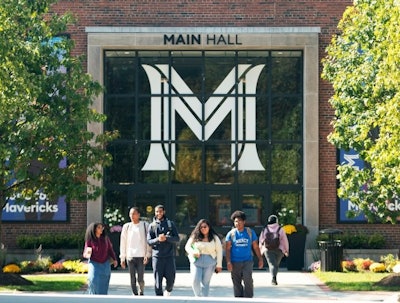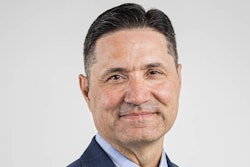
“Medical device sales training is not something you would generally find in undergraduate curriculum at a college or university, but there are all sorts of jobs out there where this skill and credential is valuable,” said Dr. Brian Amkraut, vice president for Workforce Credentialing and Community Impact at Mercy, a private university in Dobbs Ferry, NY, with locations in Manhattan and the Bronx.
Mercy is the largest private institution in New York that also qualifies as a Hispanic Serving Institution (HSI) with 44% of their student population identifying as Latinx. As a Minority Serving Institution (MSI), just under three quarters of their students are from underrepresented populations.
According to the personalized job search site Zippia, the majority of medical sales representatives (73.3%) are white, while Latinx representatives trail behind at 13.9%, and Black representatives make up a mere 3.8%. Leaders at both Mercy and MSC hope this partnership and credential will move the demographics in the industry to more closely represent the make-up of the country.
 Dr. Brian Amkraut, vice president for Workforce Credentialing and Community Impact at Mercy University.
Dr. Brian Amkraut, vice president for Workforce Credentialing and Community Impact at Mercy University.
“Not only are our instructors experts in anatomy, physiology, and surgical procedures, they have really successful careers as device representatives. It goes beyond teaching concepts, and theory and procedures, they act as a mentor to help students understand how to set themselves up for success in the industry,” said Allen.
Because of the intense nature of the program, Allen and Amkraut said that applicants might be best prepared to apply after receiving their bachelor’s degree, as the course will be an intense, science-heavy process. All applicants’ dedication, interest, and rigor will be assessed through phone interviews with instructors.
“We ensure that the students are set up for success, but they also know what they’re getting into,” said Allen. “Ultimately, the career is very rewarding. It is a significant commitment, particularly as folks get started as a device representative.”
On average, medical device sales representatives earn $74,079 yearly, with the highest average salary of $106,985 currently found in San Francisco, according to Zippia. Allen said that students and the public are often unaware of the rewarding potentials of this career, and Amkraut said this partnership will “open up an entire segment of the healthcare industry to folks who are unaware of it, and create job opportunities in that space.”
“We’re really excited about it. I believe it aligns with what our division [Workforce Credentialing and Community Impact] was brought into being to do, to reimagine how higher ed is serving the needs of the broader labor market in the New York area, and not always believing the traditional model of postsecondary education is the only pathway available,” said Amkraut.
Allen said Mercy was also keen to make sure that students would have the chance to receive financial aid or scholarships, “so that if there’s a qualified candidate that doesn’t have the resources, they can do it regardless of their financial situation.”
“This program will create great outcomes, but also serve a greater purpose,” said Allen. “The industry is screaming for more diverse candidates, and we think this [partnership] creates awareness for the student population Mercy serves.”
Liann Herder can be reached at [email protected].





















